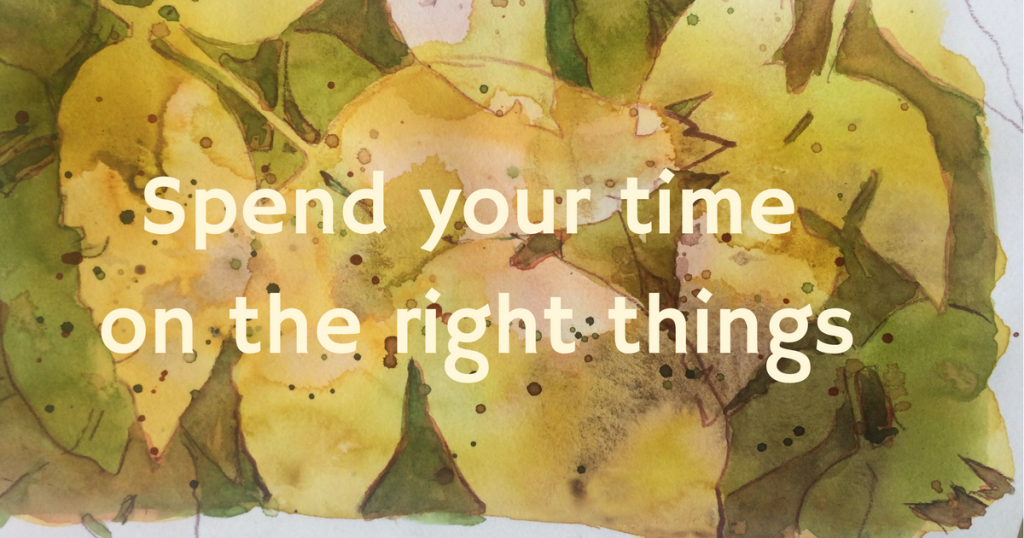
This is the fourth installment in the Positive Business series on how to use ideas from positive reinforcement (R+) in your business and your creative projects.
I remember my friend C’s dinner party one summer evening. Brilliant people, fabulous house, great conversation … and while we were chatting in the living room, five dogs stood on the dining room table gobbling up the planned meal for the guests.
Not small dogs, either.
C was a passionate dog owner … she just wasn’t a passionate dog trainer. Her pooches barked, nibbled, chewed, and jumped their way over everyone and everything. She loved them, but no one else did.
Just like naughty puppies, some problems do not fix themselves. In fact, they’ll tend to get worse. Here are five of my favorite “fixable problems.” Put them off at your peril!
1. Procrastination
Ugh, everyone’s least favorite word.
Nearly all of us do it. We put off doing the important stuff, even while we find all the time in the world to get into fights on Facebook about the best kind of puppy food and whether or not candy corn is edible.
(Answers: Talk about it with your vet, No.)
I write a lot about procrastination and productivity over on Copyblogger, and around here as well. I work on it every day. Some days it gets the better of me … and some days I kick its sorry ass.
You’re not going to “grow out of it.” In fact, it will only get worse, because procrastination is a “self rewarding” behavior.
Just like a naughty puppy who eats a whole plate of hot dogs off the table, the immediate rewards for procrastination tend to make us keep doing it.
Even though the puppy is going to feel pretty bad in a couple of hours — and so will you, after you realize you just spent four hours on Twitter arguing politics with a bot in Macedonia — in the immediate moment, they offer a cheap thrill.
I wrote a whole post about how natural-born flakes can get things done, but here are the three things I’ve found the most helpful in my own long career as serial procrastinator:
- Don’t try to tough it out with willpower. Use apps and other tools (I like the Freedom app) to enforce boundaries and protect you from distractions.
- Schedule your time. A much as you can, do the same things at the same time. Every day at 9:00 AM I do some writing. Every day at 3:00 PM I spend a few minutes on my finances. (This is new, after exhausting myself with stress for months over silly things like doing my taxes.) Every day at 4:00 PM I take a walk and lift weights or do some pushups. Every Friday at 10:00 (my time) I record a live session for our Authority community.
- Get accountability. I don’t know if I would ever have launched my first marketing course (lo these many years ago) if I hadn’t told my business coach I’d have it done by the end of the year. I think I launched it the first week of December. A coach, a peer group, or a mastermind can make a massive difference in how you approach your important tasks.
You’ll discover what works for you. Don’t kick yourself if you have to keep re-committing to the solutions that work for you again and again and again. That’s kind of how it works.
(By the way, I’m also a massive fan of Jessica Abel’s Growing Gills, which speaks directly to the challenges of productivity for creative work.)
2. Obscurity
You’d have an amazing business, project, or side hustle … if only anyone knew about it.
Your wonderful content is not going to find an audience simply by existing. You have to get the word out.
Part of your “time budget” for content creation should be spent on promoting it. Sharing it on social media, putting in the time to learn the basics of SEO, maybe even running a few low-cost ads to get more people to see your work.
I wrote a whole ebook on this for Copyblogger — you can snag it at the link below. (You’ll need to sign up for the Copyblogger content library, if you haven’ already, and that’s free).
3. Content strategy
When you start a project, often you just write for awhile, figuring out where you want to go. And that’s appropriate and good.
But as soon as you have a goal … you need a strategy that will take you there.
This doesn’t need to be 9th-level wizard chess. Just think through things like:
- How are new people going to find me?
- Once people do find me, how can I stay in touch with them? (If they’re into it …)
- What do they need to know in order to Do The Thing? (make a purchase, do the activism, or whatever your project is about)
- Is there anything else I could help my audience with?
A good content strategy should be simple enough that you’ll actually implement it, and include all the steps that a person would need to go from being a complete stranger to being a delighted and loyal customer.
4. Your network
It’s nice to think that potential partners and other experts in your topic are going to burst down the doors as soon as they see that you’ve created some good content.
Sometimes this happens. Mostly this does not happen.
Even introverts need to cultivate their networks — and even introverts can do it well.
This isn’t about rehearsing your elevator pitch (mostly people hate them) or damply pressing your business card into the hands of anyone with skin.
It’s much more about listening, about cultivating curiosity for the people you meet, and about participating in communities around your topic.
Face-to-face connections have great power, but you can cultivate wonderful relationships online, too.
5. Your skill set
OK, to some extent, if you write a lot, you’re going to get better.
But you need to work on the right things. Spending 10,000 hours playing Chopsticks will not make you a concert pianist.
If you think your writing voice is conversational, but it’s actually stiff and stilted, continuing to write in that voice won’t make it better.
If your writing is sprinkled with misspellings or usage problems, you won’t be able to reach a more sophisticated audience until you learn to quit doing that.
If you think your 8000-word rambling missives are nuanced and compelling, but your audience can’t bring themselves to read past word 10, you’ll never be able to get your message out.
Sometimes you can see your own flaws, but more often, you need a coach or a group to help you past your blind spots.
Choose carefully. Criticism that craps all over you, that fails to understand your context and goals, or that makes your approach “wrong” when it’s just different, will hold you back.
A few resources that can help
If you’re struggling with one or all of these, Copyblogger was my go-to resource for these issues before I ever partnered with Brian Clark to form the company we had today. I’m still motivated to share tutorials and tips for our audience there, because they were so helpful to me when I was starting out.
If you want something more directed, I’m planning on opening a very small number of coaching spots, to work on the kind of issues I talk about in this post, as well as writing, strategy, mindset, and business challenges.
The folks on my email list will have the first opportunity to claim spots, so if you think you might want in, drop your name and email below and I’ll let you know what I have available.
While you’re waiting, I’ll also send you a mini “Freedom” course I’m creating about how to cultivate a successful mindset, even in an environment of stress and obstacles. And you’ll also get the weekly blog post.
The Positive Business series
Here are the other posts in case you missed ’em!
- 7 Ways to Make Your Content More Rewarding
- Why “Positive Business” Doesn’t Mean Making Yourself a Chump
- How to Make Progress in Your Business … Even if You Don’t Feel Like It
- Drawing the Line Between Marketing and Manipulation
How about you?
What’s been the most interesting problem you’ve tackled in your career so far? How did you approach it? Let us know in the comments!

“If you want something more directed, I’m planning on opening a very small number of coaching spots, to work on the kind of issues I talk about in this post, as well as writing, strategy, mindset, and business challenges.”
Count me curious.
I’ve been on your email list for years. Now I’m double entered, because I signed up for the special Freedom Mini-Course.
Cool, Lori! I’ve gotten a few emails as well. 🙂
Now I just have to figure out what the preliminary package looks like … I’ll keep you posted!